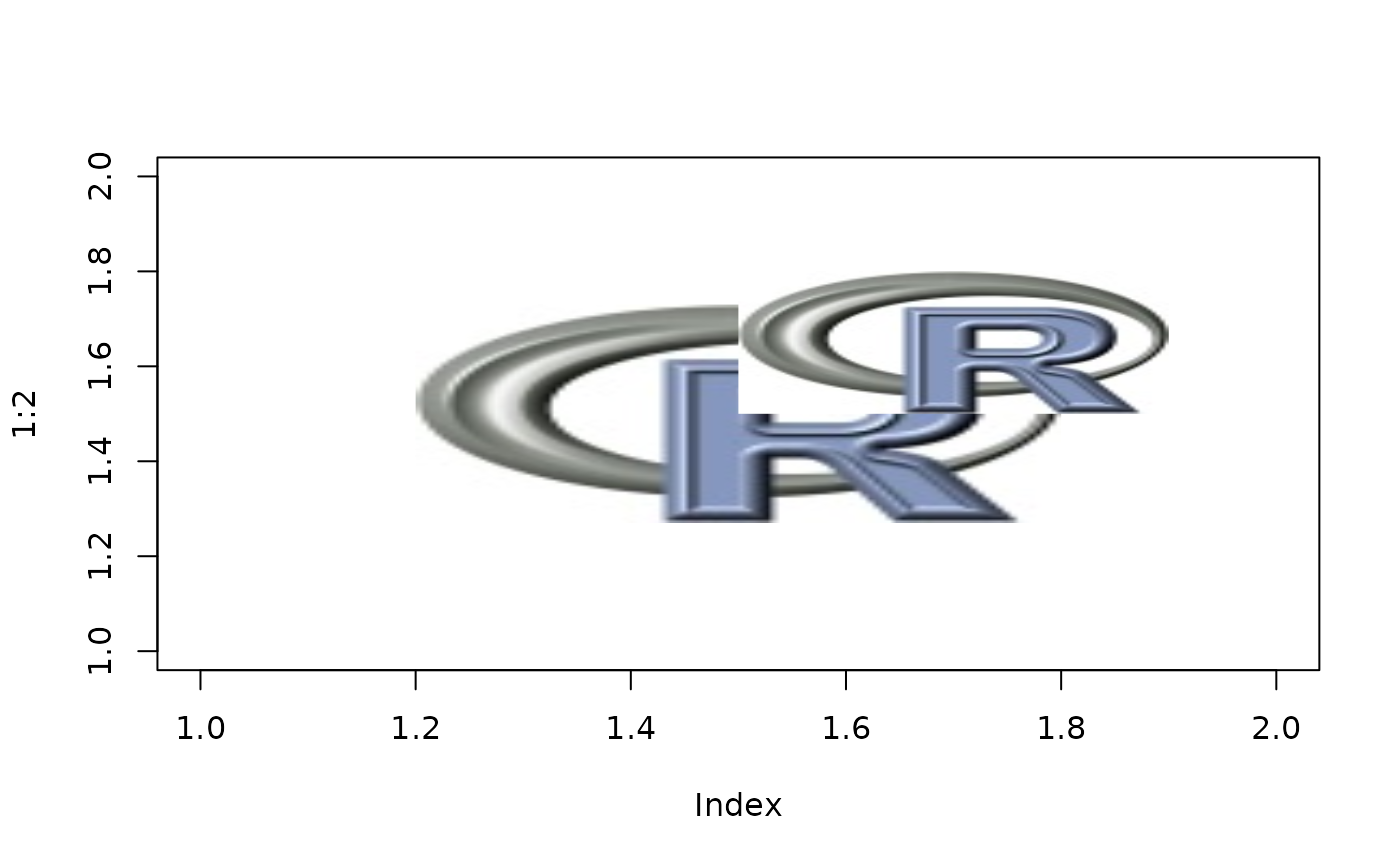Read a bitmap image stored in the JPEG format
readJPEG.RdReads an image from a JPEG file/content into a raster array.
readJPEG(source, native = FALSE)Arguments
Value
If native is FALSE then an array of the dimensions height
x width x channels. If there is only one channel the result is a
matrix. The values are reals between 0 and 1. If native is
TRUE then an object of the class nativeRaster is
returned instead. The latter cannot be easily computed on but is the
most efficient way to draw using rasterImage.
Most common files decompress into RGB (3 channels) or
Grayscale (1 channel). Note that Grayscale images
cannot be directly used in rasterImage unless
native is set to TRUE because rasterImage requires
RGB or RGBA format (nativeRaster is always 8-bit RGBA).
JPEG doesn't support alpha channel, you may want to use PNG instead in such situations.
Note
CMYK JPEG images saved by Adobe Photoshop may have inverted ink values due
to a bug in Photoshop. Unfortunately this includes some sample CMYK
images that are floating around, so beware of the source when
converting the result to other color spaces. readJPEG will
preserve values exactly as they are encoded in the file.
Some images use EXIF to indicate that the image is stored in one orientation,
but should be viewed in another. readJPEG will return the image as it
was stored, so refer to EXIF's "orientation" property for more details (e.g.,
see the read_exif function in the exifr package).
See also
Examples
# read a sample file (R logo)
img <- readJPEG(system.file("img", "Rlogo.jpg", package="jpeg"))
# read it also in native format
img.n <- readJPEG(system.file("img", "Rlogo.jpg", package="jpeg"), TRUE)
# if your R supports it, we'll plot it
if (exists("rasterImage")) { # can plot only in R 2.11.0 and higher
plot(1:2, type='n')
rasterImage(img, 1.2, 1.27, 1.8, 1.73)
rasterImage(img.n, 1.5, 1.5, 1.9, 1.8)
}
